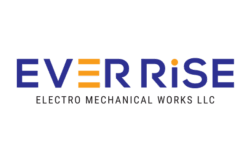
The Mechanical, Electrical, and Plumbing (MEP) sector in the UAE has experienced rapid growth over the past decade, driven by the country’s ambitious infrastructure projects, expanding urbanization, and a booming construction industry. As the UAE continues to position itself as a global hub for innovation and development, the MEP sector faces both significant challenges and exciting opportunities. This article explores the key challenges and opportunities in the MEP sector within the UAE’s growing market.
Understanding the MEP Sector in the UAE
The MEP sector plays a critical role in the construction industry, encompassing the design, installation, and maintenance of mechanical, electrical, and plumbing systems in buildings. These systems are essential for ensuring the safety, comfort, and functionality of residential, commercial, and industrial structures. In the UAE, the MEP sector is closely linked to the country’s vision for sustainable development and technological advancement, making it a key player in the nation’s growth.
The Role of MEP in UAE’s Construction Boom
The UAE’s construction sector is one of the most dynamic in the world, with large-scale projects such as the Expo 2020 site, Dubai Creek Harbour, and various smart city initiatives. The MEP sector is integral to these developments, ensuring that buildings meet the highest standards of safety, energy efficiency, and occupant comfort.
Key Contributions of MEP:
- Safety Compliance: MEP systems are essential for fire protection, electrical safety, and proper ventilation, all of which are crucial for regulatory compliance.
- Energy Efficiency: Advanced HVAC systems, energy-efficient lighting, and smart building management systems are part of the MEP design, contributing to reduced energy consumption.
- Operational Efficiency: Properly designed and maintained MEP systems ensure the smooth operation of buildings, minimizing downtime and maintenance costs.
Challenges Facing the MEP Sector in the UAE
While the MEP sector in the UAE presents numerous opportunities, it also faces several challenges that need to be addressed to sustain growth and innovation.
Rising Costs and Budget Constraints
One of the most pressing challenges in the MEP sector is the rising cost of materials, labor, and technology. These costs put pressure on MEP contractors to deliver high-quality systems while staying within budget constraints. Additionally, fluctuating market conditions and the global supply chain disruptions have made it more challenging to manage project costs effectively.
Impact on the Sector:
- Cost Overruns: Unexpected increases in material or labor costs can lead to budget overruns, affecting project profitability.
- Project Delays: Cost management issues can result in delays, impacting the overall timeline of construction projects.
- Competitive Pressure: MEP firms face pressure to remain competitive by offering cost-effective solutions without compromising on quality.
Skilled Labor Shortage
The UAE’s MEP sector is heavily reliant on skilled labor, including engineers, technicians, and installers. However, there is a growing shortage of skilled professionals, driven by the rapid pace of construction and the increasing complexity of MEP systems. This shortage has led to increased competition for talent, higher labor costs, and challenges in maintaining project timelines.
Challenges Posed by Labor Shortage:
- Quality Control Issues: A shortage of skilled workers can lead to substandard workmanship and increased rework costs.
- Increased Training Needs: Companies must invest in training and development to ensure their workforce is equipped with the latest skills and knowledge.
- Dependence on Expat Labor: The UAE’s MEP sector relies heavily on expatriate workers, making it vulnerable to changes in immigration policies and labor laws.
Regulatory Compliance and Sustainability
The UAE government has implemented stringent regulations aimed at promoting sustainability and energy efficiency in the construction industry. While these regulations are crucial for the country’s long-term goals, they also pose challenges for MEP contractors, who must ensure compliance while managing costs and timelines.
Compliance Challenges:
- Complex Regulatory Environment: Navigating the UAE’s regulatory landscape can be complex, requiring close coordination with government authorities and consultants.
- Cost of Compliance: Meeting sustainability standards often requires investment in advanced technologies and materials, which can increase project costs.
- Ongoing Maintenance Requirements: Sustainable MEP systems require regular maintenance and upgrades to remain compliant, adding to the operational costs.
Technological Advancements
The rapid pace of technological advancements in the MEP sector presents both opportunities and challenges. While new technologies can improve efficiency, reduce costs, and enhance building performance, they also require significant investment in research, development, and training.
Technological Challenges:
- High Initial Investment: The adoption of advanced MEP technologies, such as Building Information Modeling (BIM), smart building systems, and IoT integration, often requires substantial upfront investment.
- Integration with Existing Systems: Retrofitting existing buildings with new technologies can be complex and costly, requiring careful planning and execution.
- Rapid Obsolescence: The fast-paced nature of technological advancements means that systems can become obsolete quickly, requiring ongoing investment in upgrades and replacements.
Opportunities in the MEP Sector
Despite the challenges, the MEP sector in the UAE offers significant opportunities for growth, innovation, and market leadership.
Embracing Sustainability
As the UAE continues to prioritize sustainability, MEP firms that invest in energy-efficient and environmentally friendly solutions are well-positioned to capitalize on this trend. Green building certifications, such as LEED and Estidama, are becoming increasingly important in the market, creating opportunities for MEP contractors to differentiate themselves through sustainable practices.
Sustainability Opportunities:
- Green Building Projects: The demand for green buildings is on the rise, offering opportunities for MEP firms to participate in high-profile, sustainable developments.
- Energy-Efficient Solutions: Companies that specialize in energy-efficient HVAC systems, LED lighting, and water-saving plumbing systems can tap into a growing market.
- Government Incentives: The UAE government offers various incentives for sustainable construction practices, providing financial benefits to MEP firms that adopt green technologies.
Technological Innovation
The adoption of cutting-edge technologies, such as Building Information Modeling (BIM), smart building management systems, and IoT-enabled MEP systems, presents significant opportunities for MEP firms to enhance their service offerings and improve project outcomes.
Opportunities through Innovation:
- Improved Project Efficiency: BIM and other digital tools enable more accurate project planning, reducing errors, rework, and delays.
- Enhanced Building Performance: Smart MEP systems allow for real-time monitoring and control, optimizing energy usage and improving building performance.
- Competitive Advantage: MEP firms that lead in technological innovation can differentiate themselves in a crowded market, attracting premium clients and projects.
Expanding Market Demand
The UAE’s growing population and expanding economy continue to drive demand for new commercial, residential, and industrial developments. This ongoing construction boom presents opportunities for MEP contractors to secure new projects and expand their market presence.
Market Demand Opportunities:
- Mega-Projects: The UAE’s ambitious mega-projects, such as the Dubai South development and the Abu Dhabi Economic Vision 2030, offer lucrative opportunities for MEP firms.
- Residential Sector Growth: The demand for high-quality residential developments continues to grow, creating opportunities for MEP contractors specializing in luxury and sustainable housing.
- Industrial and Infrastructure Projects: The UAE’s focus on diversifying its economy and developing its infrastructure presents opportunities in sectors such as manufacturing, logistics, and transportation.
Diversification of Services
To remain competitive in a rapidly evolving market, MEP firms can explore opportunities to diversify their service offerings. This can include expanding into related areas such as facilities management, renewable energy solutions, and smart building technologies.
Diversification Strategies:
- Facilities Management: Offering ongoing maintenance and management services for MEP systems can create a steady revenue stream and strengthen client relationships.
- Renewable Energy Solutions: With the UAE’s focus on renewable energy, MEP firms can explore opportunities in solar power, wind energy, and energy storage systems.
- Smart Building Technologies: As smart cities and buildings become more prevalent, MEP contractors can offer expertise in integrating IoT-enabled systems and smart building management platforms.
The MEP sector in the UAE is at a crossroads, facing both significant challenges and exciting opportunities. By embracing sustainability, investing in technological innovation, and expanding their service offerings, MEP firms can position themselves for success in a growing and competitive market. While the road ahead may be complex, the potential rewards make it a journey worth undertaking for those who are willing to adapt, innovate, and lead the way in the UAE’s dynamic construction landscape.
